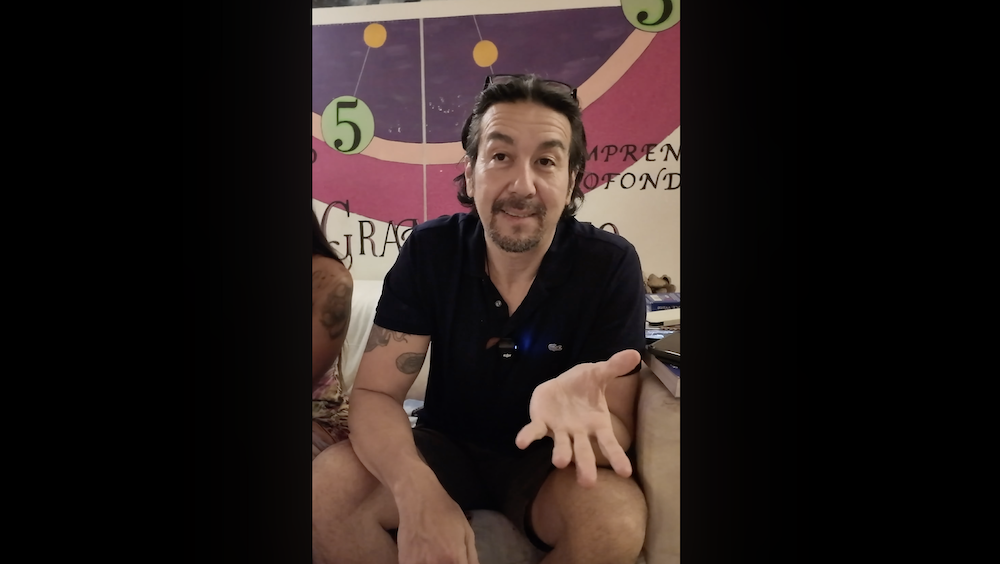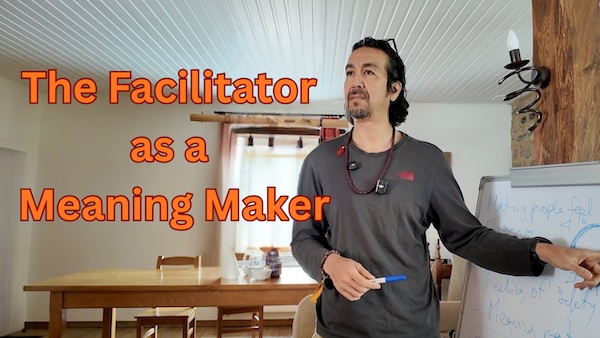Six forgotten secrets to unlock your creative mind and get you writing right away.

Over the years I have had long stretches of consistent writing interrupted by periods of writer’s block that have kept me off keyboard and paper for months and even years. Going through literature to get some inspiration on writing I have been able to learn a thing or two on how to get back to the habit. One of the books that really helped me to get over this was Accidental Genius: Using Writing to Generate Your Best Ideas, Insight, and Content by Mark Levy. Mark Levy a business consultant himself, discovered that freewriting was a helpful technique to solve business problems and to develop new business ideas.
Writer’s block is something I can describe as a constant hesitation created by self-demand and self-criticism on whatever you are attempting to write. This generates a feedback loop that ends up burning you out and discouraging any efforts to unleash your creative flow. Getting rid of the self-editor, the self-demanding critic was one of the key hindrances that I was able to bypass using Mark Levy’s freewriting method. His book taught me an easy to follow freewriting method that I was able to apply in order regain my creative flow.
Freewriting
Freewriting is one of the most valuable techniques I know. It is a way to use your body to gain a mechanical advantage over your mind, so that your mind can do a better job.
Mark Levy
Personally, I see freewriting more like calisthenics for the mind that gives you the conditioning and endurance to run a mental marathon which could be a poem, an article, an essay, or your next novel. It is one of the easiest and most enjoyable techniques that exercise your flow of thoughts onto paper. Mark Levy develops it into a method he breaks down into 6 techniques or attitudes that can help enhance and improve the use of freewriting for literary purposes and overall creative productivity.
6 Secrets of Free Writing
1. Try Easy
Put the self-demanding and self-criticism voice aside and just give yourself permission to write down the ideas that flow through your mind.
One of the key ideas with freewriting is that whatever you write is only meant for yourself, like private writing. Therefore you are not writing to seek approval. Try easy is just leaving the self demand voice aside and just write. The attitude is to do it in a relaxed and comfortable way that you can enjoy. Self demand and need for perfection are some of the reasons for writer’s block. Going over an over a piece not being confident about your words, trying to find the perfect lines can easily trap you in a writer’s block. By simply taking it easy, the self demand and self-criticism are overlooked and you allow yourself to flow with your thoughts because when we write to ourselves we do not have to be perfect. Doing it easy allows you to enjoy and flow with the writing exercise.
2. Write fast and non-stop
If your mind knows that your hand won’t stop, it will relax in its attempts to edit your banal and inappropriate thoughts.
This attitude reinforces the previous one since when writing fast and non-stop you have no other option than to allow your thoughts to flow. By typing fast you invite your mind to operate at a rate similar to the speed of thought. Likewise, in this way disengage your mental editor attempts to analyze and criticize your writing. Remember, no matter what you write, at this stage, the important thing is to connect with the rhythm and flow of your thoughts. Basically it’s like writing to the rhythm of your speech.
3. Set up a writing goal
The goal we are talking about here is to schedule your sessions to last a specified time or a specified number of words. Limiting the time or number of words in your sessions reinforces your writing efforts by meeting those goals. Additionally, it gives you a chance to regain your strength and continue writing.
Carry out sessions for short periods of time between 10 and 20 minutes where we dedicate maximum concentration to writing. Achieving goals motivates.
4. Write the way you think
Freewriting isn’t writing, per se; it’s a means of watching yourself think. Mark Levy
During freewriting sessions, it is necessary that our raw thoughts, fresh from the furnace of the unconscious, manifest before our critical mind criticizes or censors them. In other words, if you already have confidence in how you speak, you will surely have enough confidence to be able to transmit those thoughts to paper without much complication.
Since you’re writing for yourself, you don’t need to spit-shine your raw thoughts to please others. All that matters is that you yourself understand your logic, references, word choices, and idiosyncratic ideas. ~Mark Levy
This attitude will allow us to develop proficiency and also synchronicity between our writing and our thinking.
5. Flow with your thoughts
Freewriting is an improvisation, it is connecting with the present state of your thoughts and being able to capture them on paper in that precise moment. The technique is to focus on an idea and allow that idea to let the thoughts flow and to be able to capture all that creative flow on paper.
Staying present in the idea you are writing and with everything that emerges from it not letting the mental editor, judge the development of those ideas.
6. Focus your attention
The idea around this technique is to ask yourself questions that allow you to expand the contents of what you are trying to deliver on paper. Mark Levy calls them, focus changers. These allow questions to be asked during the freewriting session that further expands your creative development.
Examples of focus changers are questions like:
- How else could I say this?
- What more could you add?
- Why?
- How could I make this idea more entertaining?
- How can I describe this to an uninterested person?
- Can I prove my point?
In the end, what you are trying to do is to take advantage of freewriting but reminding yourself that it has to make sense. Focus changers are brief moments you observer that idea and try to expand it and develop it more giving you more material to keeping up your pace.
Focus changers are simple questions that we ask ourselves when we write that makes us redirect our attention to unexplored places in our idea or thought.
Freewriting is Writefulness
Just like mindfulness exercises the ability to anchor your attention to the present moment freewriting anchors your attention to the present thought our idea translated into writing. It is the exercise of being in the here and now of the writing process and being able to connect more freely with your ideas. Freewriting certainly relaxes me and allows me to express myself better. Most importantly, it reduces the resistance I have always had between thinking and writing.
Freewriting has allowed me to put aside my beliefs and limitations and has connected me with the joy of writing. Accidental Genius has been one of the most effective therapeutic books for unblocking my writer’s block syndrome. This article you just read is part of that book’s magic which in part I owe to freewriting.
Bibliography
Levy, Mark. Accidental Genius: Using Writing to Generate Your Best Ideas, Insight, and Content (p. 32). Berrett-Koehler Publishers. Kindle Edition
BOOK in Amazon: https://amzn.to/2Vv4zWW
Related
Discover more from TRANSCENDENT PSYCHOLOGY
Subscribe to get the latest posts sent to your email.






